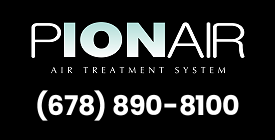[vc_row full_width=”stretch_row” css=”.vc_custom_1683131896386{background-image: url(https://pionair.net/wp-content/uploads/2023/05/background_image02.jpg?id=24235) !important;background-position: center !important;background-repeat: no-repeat !important;background-size: cover !important;}”][vc_column width=”1/1″][vc_empty_space height=”150px”][vc_row_inner gap=”35″][vc_column_inner width=”7/12″][vc_column_text]
How It Works
[/vc_column_text][vc_separator color=”custom” border_width=”2″ el_width=”60″ accent_color=”#6ba292″][vc_empty_space height=”35px”][vc_column_text css=”.vc_custom_1686335532574{padding-right: 50px !important;padding-left: 50px !important;}”]
USING UVC LIGHT, PIONAIR WORKS QUIETLY AND EFFECTIVELY TO CLEAN THE AIR IN YOUR HOME OR BUSINESS.
[/vc_column_text][vc_empty_space height=”50px”][vc_btn title=”Shop Now!” shape=”square” color=”vista-blue” size=”lg” align=”center” i_icon_fontawesome=”fas fa-shopping-cart” add_icon=”true” link=”url:https%3A%2F%2Fpionair.net%2Fpionair-products%2F”][/vc_column_inner][vc_column_inner width=”5/12″][vc_empty_space height=”25px”][pofo_video_sound pofo_video_type=”html5″ pofo_video_preview_image=”html5″ mp4_video=”https://pionair.net/wp-content/uploads/2023/05/pionair_15_sec.mp4″][vc_empty_space height=”25px”][vc_single_image image=”25081″ img_size=”full” alignment=”center”][/vc_column_inner][/vc_row_inner][vc_empty_space height=”50px”][/vc_column][/vc_row][vc_row id=”about”][vc_column width=”1/1″][vc_empty_space height=”15px”][/vc_column][/vc_row][vc_row full_width=”stretch_row” id=”about” css=”.vc_custom_1684861515989{background-image: url(https://pionair.net/wp-content/uploads/2023/05/background_image03.jpg?id=24547) !important;background-position: center !important;background-repeat: no-repeat !important;background-size: cover !important;}”][vc_column width=”1/1″][vc_empty_space height=”50px”][vc_row_inner gap=”35″][vc_column_inner width=”1/3″ css=”.vc_custom_1684861834814{padding-top: 20px !important;padding-right: 20px !important;padding-bottom: 20px !important;padding-left: 20px !important;background-color: rgba(255,255,255,0.75) !important;background-position: center !important;background-repeat: no-repeat !important;background-size: cover !important;*background-color: rgb(255,255,255) !important;}”][vc_empty_space height=”25px”][vc_single_image image=”24542″ img_size=”full” alignment=”center”][vc_empty_space height=”25px”][vc_column_text]
Suffer From Allergies?
[/vc_column_text][vc_separator color=”custom” align=”align_left” border_width=”2″ el_width=”90″ accent_color=”#6ba292″][vc_empty_space height=”25px”][vc_column_text css=”.vc_custom_1684861789823{padding-right: 15px !important;padding-left: 15px !important;}”]
One in five people in the US have allergies or asthma symptoms. There are no cures for allergies, but people who suffer from allergies can be helped with better air treatment.
[/vc_column_text][vc_empty_space height=”25px”][/vc_column_inner][vc_column_inner width=”1/3″ css=”.vc_custom_1684861850690{padding-top: 20px !important;padding-right: 20px !important;padding-bottom: 20px !important;padding-left: 20px !important;background-color: rgba(255,255,255,0.75) !important;background-position: center !important;background-repeat: no-repeat !important;background-size: cover !important;*background-color: rgb(255,255,255) !important;}”][vc_empty_space height=”25px”][vc_single_image image=”24543″ img_size=”full” alignment=”center”][vc_empty_space height=”25px”][vc_column_text]
Dust Accumulation?
[/vc_column_text][vc_separator color=”custom” align=”align_left” border_width=”2″ el_width=”90″ accent_color=”#6ba292″][vc_empty_space height=”25px”][vc_column_text css=”.vc_custom_1684861799004{padding-right: 15px !important;padding-left: 15px !important;}”]
Dust particles can be less than 1/30th the width of a human hair and easily pass through the nose and throat. It then enters the lungs and embeds there and in the bloodstream.
[/vc_column_text][vc_empty_space height=”25px”][/vc_column_inner][vc_column_inner width=”1/3″ css=”.vc_custom_1684861870282{padding-top: 20px !important;padding-right: 20px !important;padding-bottom: 20px !important;padding-left: 20px !important;background-color: rgba(255,255,255,0.75) !important;background-position: center !important;background-repeat: no-repeat !important;background-size: cover !important;*background-color: rgb(255,255,255) !important;}”][vc_empty_space height=”25px”][vc_single_image image=”24544″ img_size=”full” alignment=”center”][vc_empty_space height=”25px”][vc_column_text]
Mold and Germs?
[/vc_column_text][vc_separator color=”custom” align=”align_left” border_width=”2″ el_width=”90″ accent_color=”#6ba292″][vc_empty_space height=”25px”][vc_column_text css=”.vc_custom_1684861808489{padding-right: 15px !important;padding-left: 15px !important;}”]
Symptoms of mold and germs in your environment include runny nose, eye irritation, cough, congestion, headache, flu like symptoms and many more. Not all molds are harmful, but better safe than sorry.
[/vc_column_text][vc_empty_space height=”25px”][/vc_column_inner][/vc_row_inner][vc_empty_space height=”50px”][vc_btn title=”Shop Units Now” shape=”square” color=”white” size=”lg” align=”center” i_icon_fontawesome=”fas fa-shopping-cart” add_icon=”true” link=”url:https%3A%2F%2Fpionair.net%2Fall-units%2F”][vc_empty_space height=”50px”][/vc_column][/vc_row][vc_row id=”about”][vc_column width=”1/1″][vc_empty_space height=”50px”][/vc_column][/vc_row][vc_row gap=”35″ id=”about”][vc_column width=”5/12″][vc_column_text]
What Size Do I Need?
[/vc_column_text][vc_separator color=”custom” align=”align_left” border_width=”2″ el_width=”90″ accent_color=”#6ba292″][vc_empty_space height=”25px”][vc_column_text]
-
Call Us For Free Information
-
30 Day Money Back Guarantee
-
Secure Payments
-
3 Year Unconditional Warranty
[/vc_column_text][vc_empty_space height=”15px”][vc_row_inner][vc_column_inner width=”5/6″][vc_single_image image=”24545″ img_size=”full”][/vc_column_inner][vc_column_inner width=”1/6″][/vc_column_inner][/vc_row_inner][/vc_column][vc_column width=”1/12″][/vc_column][vc_column width=”1/2″][vc_column_text][/vc_column_text][/vc_column][/vc_row][vc_row id=”about”][vc_column width=”1/1″][vc_empty_space height=”50px”][/vc_column][/vc_row][vc_row full_width=”stretch_row” id=”about” css=”.vc_custom_1684861515989{background-image: url(https://pionair.net/wp-content/uploads/2023/05/background_image03.jpg?id=24547) !important;background-position: center !important;background-repeat: no-repeat !important;background-size: cover !important;}”][vc_column width=”1/1″][vc_empty_space height=”35px”][vc_row_inner gap=”35″][vc_column_inner width=”1/2″][vc_empty_space height=”35px”][pofo_video_sound pofo_video_type=”html5″ pofo_video_preview_image=”html5″ mp4_video=”https://pionair.net/wp-content/uploads/2023/05/testimonial_dr_atkins.mp4″][/vc_column_inner][vc_column_inner width=”1/2″][vc_column_text]
Why Smart Pointe?
[/vc_column_text][vc_separator color=”custom” align=”align_left” border_width=”2″ el_width=”90″ accent_color=”#6ba292″][vc_empty_space height=”25px”][vc_column_text]
By enhancing the negative ion generation, we improved the speed at which we attach to positively-charged particulate and drop it out of your breathing space. Many allergic reactions are triggered by particulate (allergens). The SMART POINTE is a perfect choice for those of us who suffer from allergies triggered by airborne particulate (allergens). The SMART POINTE is also an excellent choice for anyone contending with high concentrations of pollen, pet dander, dust, or smoke.
[/vc_column_text][vc_empty_space height=”25px”][vc_column_text]
View Pionair’s Video Testimonials.
[/vc_column_text][/vc_column_inner][/vc_row_inner][vc_empty_space height=”35px”][/vc_column][/vc_row][vc_row id=”about”][vc_column width=”1/1″][vc_empty_space height=”50px”][vc_column_text]
Smart Pointe Units
[/vc_column_text][vc_separator color=”custom” border_width=”2″ el_width=”20″ accent_color=”#6ba292″][vc_empty_space height=”35px”][/vc_column][/vc_row][vc_row id=”about”][vc_column width=”1/12″][/vc_column][vc_column width=”5/6″][vc_row_inner gap=”35″][vc_column_inner width=”1/3″][vc_single_image image=”24231″ img_size=”full” alignment=”center” onclick=”custom_link” link=”https://pionair.net/smart-units/pionair-smart-350-unit”][vc_empty_space height=”25px”][vc_column_text]
Pionair 350 Unit with Smart Pointe
[/vc_column_text][vc_separator el_width=”50″][vc_empty_space height=”25px”][vc_column_text]
This unit covers 100 – 250 SF and may be used for a single room or small office space. The unit has 3-year unconditional parts and labor warranty.
[/vc_column_text][vc_empty_space height=”15px”][vc_column_text]
$695.95
[/vc_column_text][vc_empty_space height=”35px”][vc_btn title=”Add To Cart” style=”outline” shape=”square” color=”vista-blue” size=”lg” align=”center” i_icon_fontawesome=”fas fa-shopping-cart” add_icon=”true” link=”url:https%3A%2F%2Fpionair.net%2Fproduct%2F%3Fadd-to-cart%3D24411″][/vc_column_inner][vc_column_inner width=”1/3″][vc_single_image image=”24231″ img_size=”full” alignment=”center” onclick=”custom_link” link=”https://pionair.net/smart-units/pionair-smart-750-unit”][vc_empty_space height=”25px”][vc_column_text]
Pionair 750 Unit with Smart Pointe
[/vc_column_text][vc_separator el_width=”50″][vc_empty_space height=”25px”][vc_column_text]
This unit covers 400 – 750 SF and may be used for a single room or small office space. The unit has 3-year unconditional parts and labor warranty.
[/vc_column_text][vc_empty_space height=”15px”][vc_column_text]
$795.95
[/vc_column_text][vc_empty_space height=”35px”][vc_btn title=”Add To Cart” style=”outline” shape=”square” color=”vista-blue” size=”lg” align=”center” i_icon_fontawesome=”fas fa-shopping-cart” add_icon=”true” link=”url:https%3A%2F%2Fpionair.net%2Fproduct%2F%3Fadd-to-cart%3D24409″][/vc_column_inner][vc_column_inner width=”1/3″][vc_single_image image=”24231″ img_size=”full” alignment=”center” onclick=”custom_link” link=”https://pionair.net/smart-units/pionair-smart-1500-unit”][vc_empty_space height=”25px”][vc_column_text]
Pionair 1500 Unit with Smart Pointe
[/vc_column_text][vc_separator el_width=”50″][vc_empty_space height=”25px”][vc_column_text]
This unit covers 800 – 1,500 SF and may be used for a single room or small office space. The unit has 3-year unconditional parts and labor warranty.
[/vc_column_text][vc_empty_space height=”15px”][vc_column_text]
$856.45
[/vc_column_text][vc_empty_space height=”35px”][vc_btn title=”Add To Cart” style=”outline” shape=”square” color=”vista-blue” size=”lg” align=”center” i_icon_fontawesome=”fas fa-shopping-cart” add_icon=”true” link=”url:https%3A%2F%2Fpionair.net%2Fproduct%2F%3Fadd-to-cart%3D24403″][/vc_column_inner][/vc_row_inner][/vc_column][vc_column width=”1/12″][/vc_column][/vc_row][vc_row][vc_column width=”1/1″][vc_empty_space height=”35px”][/vc_column][/vc_row][vc_row full_width=”stretch_row” id=”about” css=”.vc_custom_1684949508674{background-image: url(https://pionair.net/wp-content/uploads/2023/05/background_image04.jpg?id=24678) !important;background-position: center !important;background-repeat: no-repeat !important;background-size: cover !important;}”][vc_column width=”1/1″][vc_empty_space height=”50px”][vc_row_inner gap=”35″][vc_column_inner width=”1/1″][vc_single_image image=”25081″ img_size=”full” alignment=”center”][/vc_column_inner][/vc_row_inner][vc_empty_space height=”50px”][/vc_column][/vc_row][vc_row full_width=”stretch_row” gap=”25″ css=”.vc_custom_1623850477420{background-color: #000000 !important;background-position: center !important;background-repeat: no-repeat !important;background-size: cover !important;}” id=”contact”][vc_column width=”7/12″][vc_empty_space height=”5px”][vc_single_image image=”24779″ img_size=”full” alignment=”center”][vc_empty_space height=”35px”][vc_column_text]
Our company is dedicated to providing the very best quality products and service. Happy customers is our number one goal! We strive to be the best in the industry and innovate our products.
[/vc_column_text][vc_empty_space height=”15px”][vc_column_text]
Disclaimer: *This is not a medical device and we make no claims that the Pionair will cure or treat illnesses or health issues. Statements made by customers as testimonials are their own opinion based on their experience. These are unsolicited and not paid.
[/vc_column_text][vc_empty_space height=”35px”][vc_column_text]
© 2024 Pionair. All Rights Reserved.
[/vc_column_text][vc_column_text]
Site Designed by The Marketing House
[/vc_column_text][vc_empty_space height=”65px”][/vc_column][vc_column width=”4/12″][vc_empty_space height=”40px”][vc_column_text]
Physical Location
[/vc_column_text][vc_separator color=”white” align=”align_right” el_width=”70″ css=”.vc_custom_1683199657431{margin-top: -5px !important;}”][vc_empty_space height=”15px”][vc_column_text]
238 Club Place SE
Atlanta, GA 30317
Phone: (678) 890-8100[/vc_column_text][vc_empty_space height=”65px”][vc_column_text]
Office Hours
[/vc_column_text][vc_separator color=”white” align=”align_right” el_width=”50″ css=”.vc_custom_1683199679645{margin-top: -5px !important;}”][vc_empty_space height=”15px”][vc_column_text]
Mon – Fri: 9am-7pm EST
Saturday: CLOSED
Sunday: CLOSED[/vc_column_text][vc_empty_space height=”65px”][vc_btn title=”Send Us An Email” shape=”square” color=”vista-blue” align=”right” i_icon_fontawesome=”fas fa-angle-right” add_icon=”true” link=”url:mailto%3Ainfo%40pionar.net|target:_blank”][vc_empty_space height=”35px”][/vc_column][vc_column width=”1/12″][/vc_column][/vc_row]
